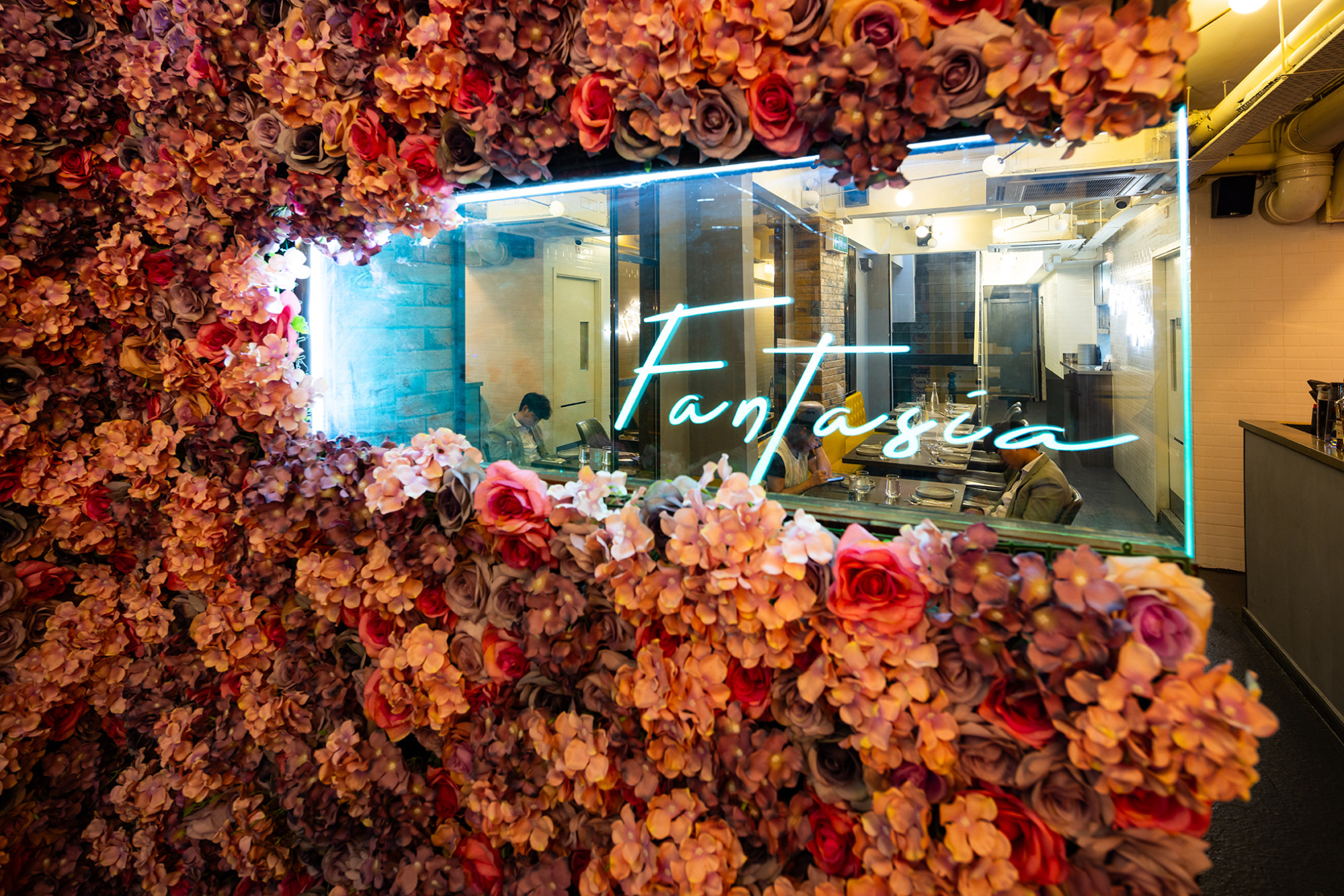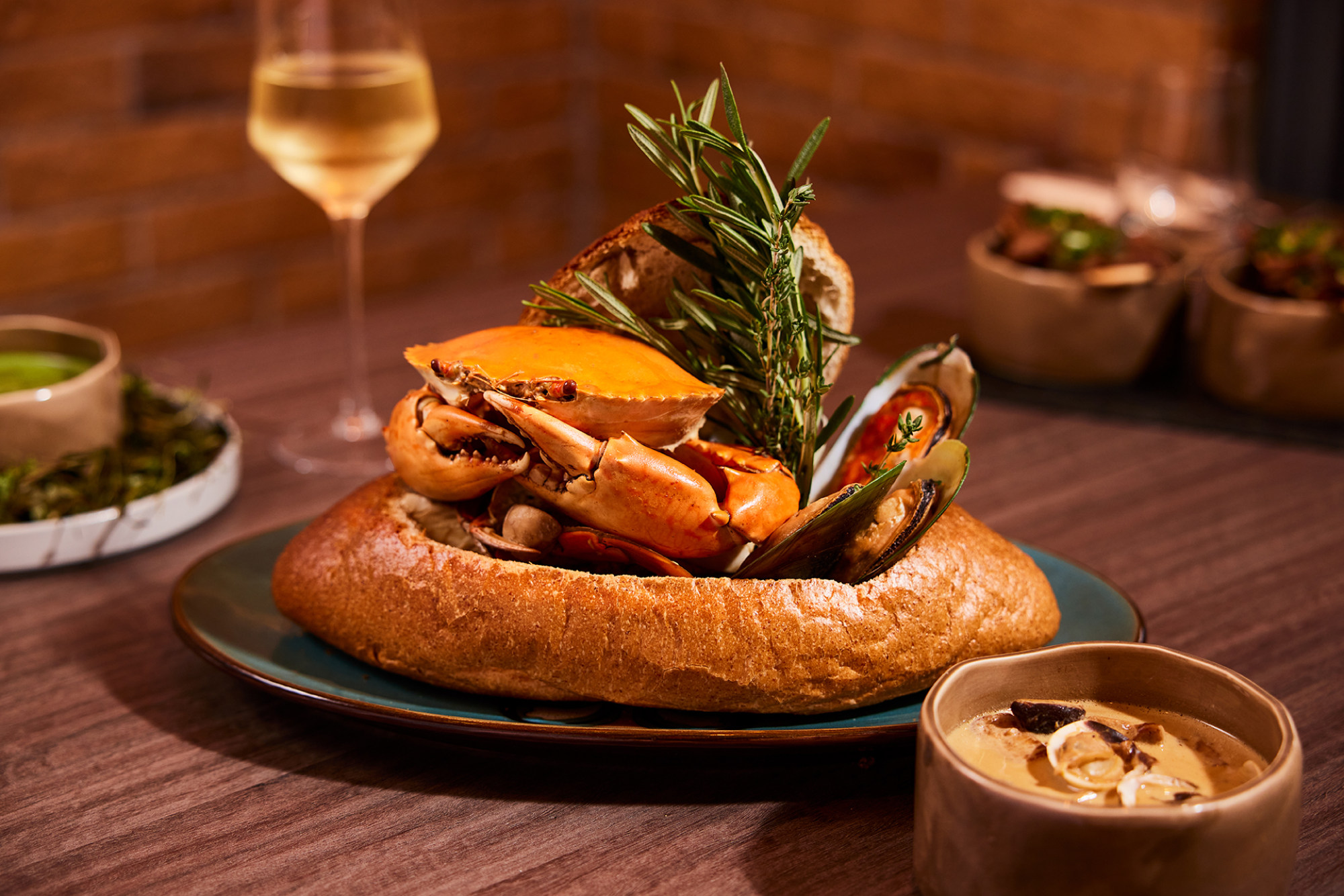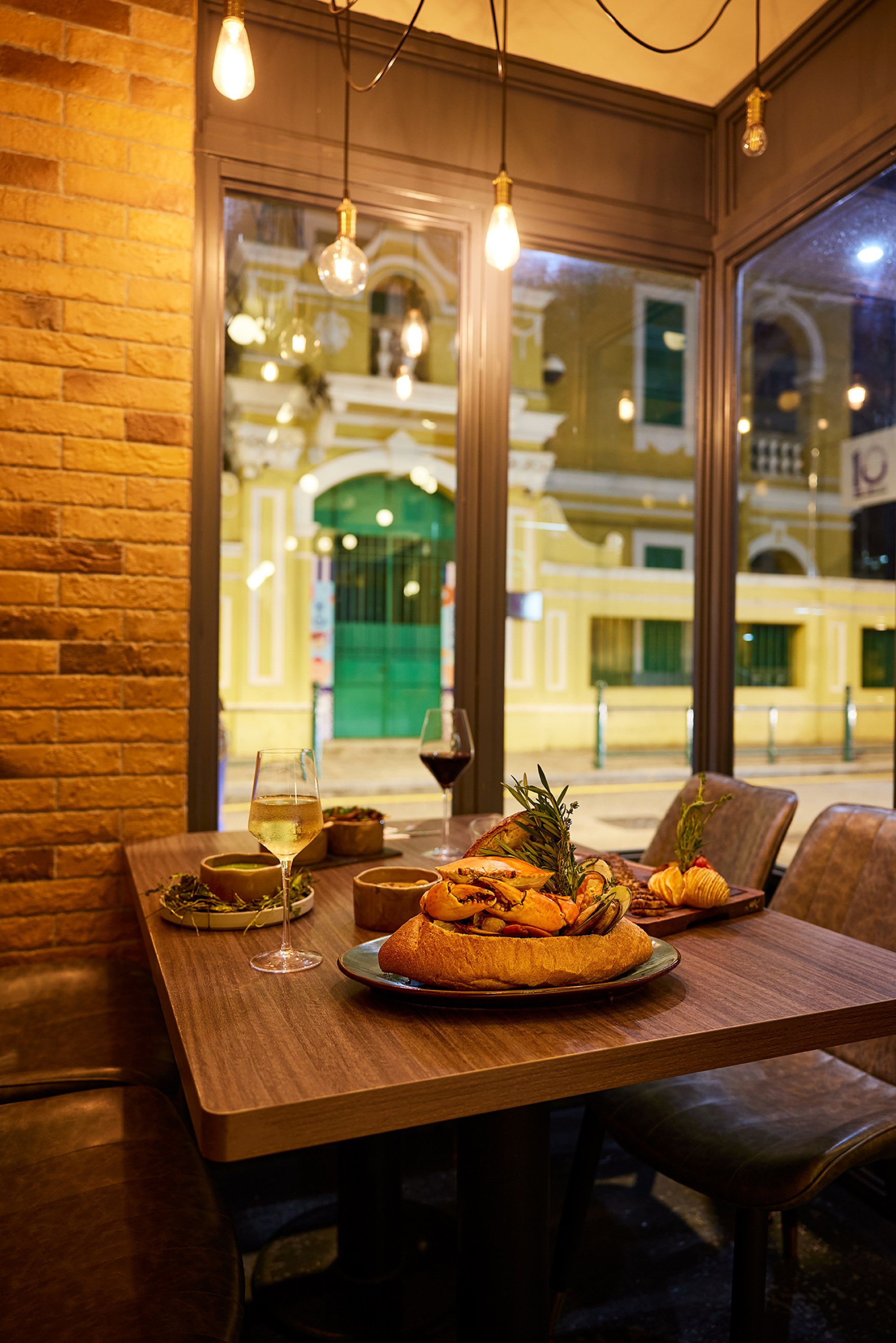
On an unassuming alleyway in Macau called Rua de Sanches de Miranda – set between the famed landmark Ruins of St Paul’s and the heritage building-turned-art hub Albergue da Santa Casa da Misericórdia – you will find Fantasia Kitchen emitting a warm glow from its glass-paned doors in the evening.
Chatter and laughter from the restaurant can often be heard from the street, and customers are sometimes seen gathered outside on the stone-paved lane, having conversations over glasses of wine.
Since opening in 2016, the restaurant has garnered fanfare from locals and visitors alike for its creative Italian cuisine with Asian influences. In online reviews, regulars rave about dishes such as the mint cream with coriander soup, served in a bread bowl, and Japanese-style beef risotto with tomato. Daring creations such as Korean-style pizza topped with braised chicken and tteokbokki have received diners’ acclaim as well.

Restaurant co-founder Jeffrey Ieong recalls a time when the chef decided to play around with Hong Kong’s classic pineapple bun, a sweet bread roll so named not because it contains the fruit, but because its creviced, crusty top resembles the skin of a pineapple.
“We made a palm-sized version of it, stuffed it with seared goose liver and garnished it with popping candy. It turned out quite well,” he says.
“Not all experimentation works. Sometimes you end up trying a recipe four to five times, and it just doesn’t cut the mustard. You’ve got to have the passion for food to be in this business.”

And that passion can be felt in the restaurant’s signature recipes, such as its 72-hour smoked US beef brisket and Spanish Iberico pork belly. There is also its whole baked crab in cream sauce served with porcini mushrooms in a bread bowl, which has won an iFood Award from the Macao Catering Industry Association.
“Our signature dishes require advance booking because of their long preparation time, and in the case of the crab dish, we need to call the fish market on the day to secure the freshest catch,” Ieong says.
The fine food is complemented by a curated wine list. Ieong explains: “It just so happens that my business partner used to work in the wine import industry, and he has the palate and nose to find the right bottles for our dishes.”
Ieong also understands that modern-day diners are not just looking for delicious meals, but also a feast for the eyes – and the camera.

So all of the dishes are artfully presented, with everything from the crockery to colour contrasts being well thought out. These efforts have earned the restaurant many likes and admiring comments on social media.
“People love their social media photos these days,” Ieong says. “We refurbished the restaurant about two years ago. We have a floral wall at the entrance, alongside a neon sign. They are all very Instagrammable.”
The restaurant reflects how the dining scene in Macau has come of age. Before the hotel boom began in the early 2000s, the city was primarily known for its history as a Portuguese outpost and its fusion cuisine. Macanese cooking is a creole culinary tradition that combines flavours from Portugal with those from its former colonies in Africa, South America and Asia. Restaurants serving Macanese dishes were beloved for their casual atmospheres as well as their menus.
For locals like Ieong, dining out was always a family affair, with the eatery of choice often being a Chinese restaurant where everyone knew each other’s names. But as international hotels brought in new dining concepts along with an increasing number of visitors from mainland China, Hong Kong and around the world, Macau’s dining scene experienced a seismic shift.
“Eyes were opened up, and then you started seeing places opening up,” Ieong says. “You’d suddenly see a new place for Sichuan sour fish stew, or a yakitori place or omakase. Naturally, people would be curious to try it out.”

According to information released last year by Macau’s Statistics and Census Service, the number of restaurants and similar food establishments in the city totals 4,725. In addition, Macau has been a member of Unesco’s Creative Cities Network since 2017, designated as a “Creative City of Gastronomy”.
When it comes to providing a gastronomic experience, the setting of Fantasia Kitchen is as essential as its distinctive menu. It is located in the picturesque St Lazarus District, which is home to many preserved historical buildings and also serves as a hub for art and cultural activities. The restaurant looks out towards 10 Fantasia, a century-old building that has been converted into an incubator for creative industries. Going there feels like stepping back in time to an old southern European town.
Ieong sees his restaurant not only as a creative house for food, but also as a place where people can slow down and savour the moment.
“To properly enjoy the experience, it takes at least three hours,” he says. “We hope that our customers can taste all the time and effort we have put into preparing the dishes.”
Stay connected with us on social media platform for instant update click here to join our Twitter, & Facebook
We are now on Telegram. Click here to join our channel (@TechiUpdate) and stay updated with the latest Technology headlines.
For all the latest Travel News Click Here
